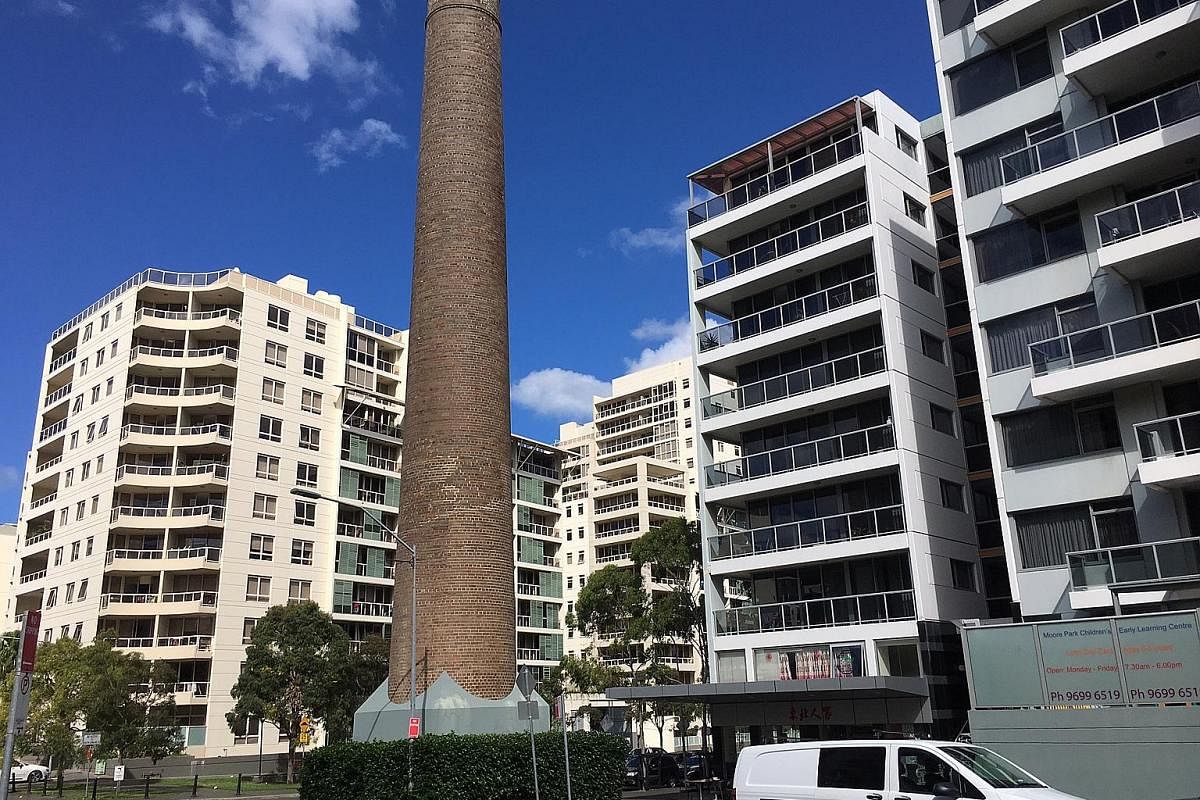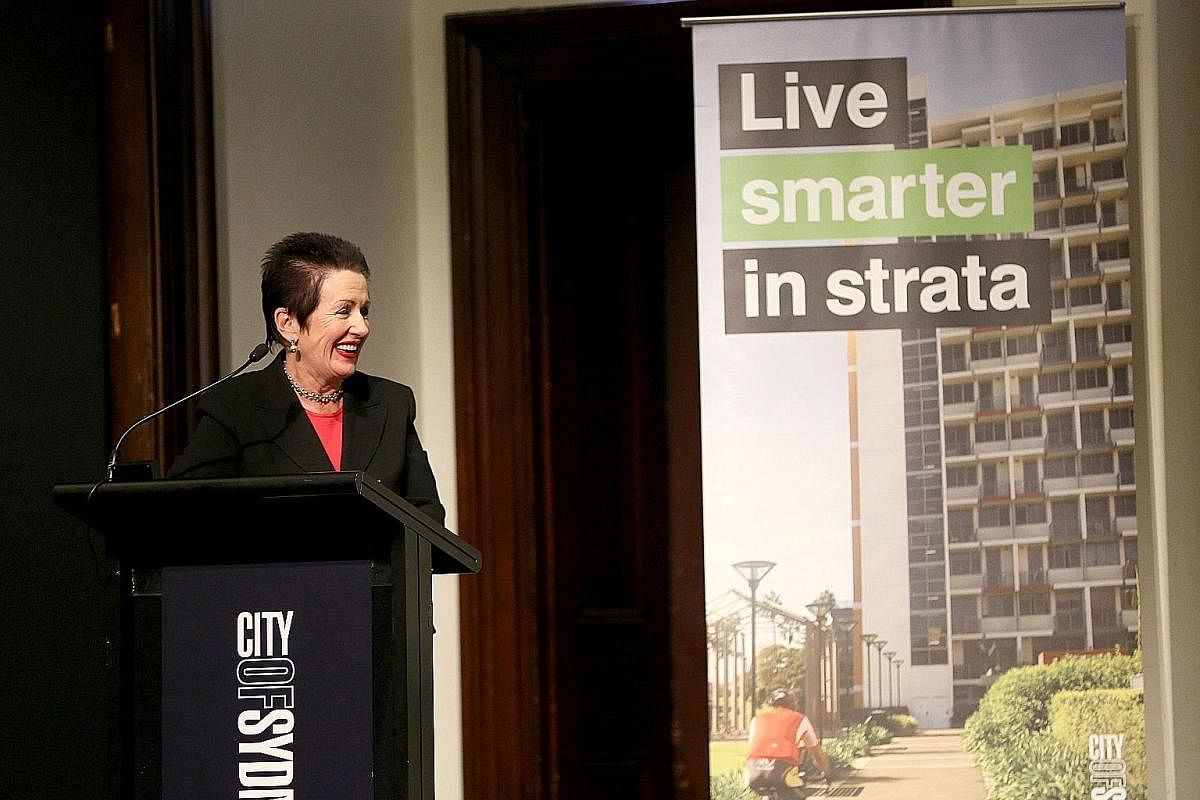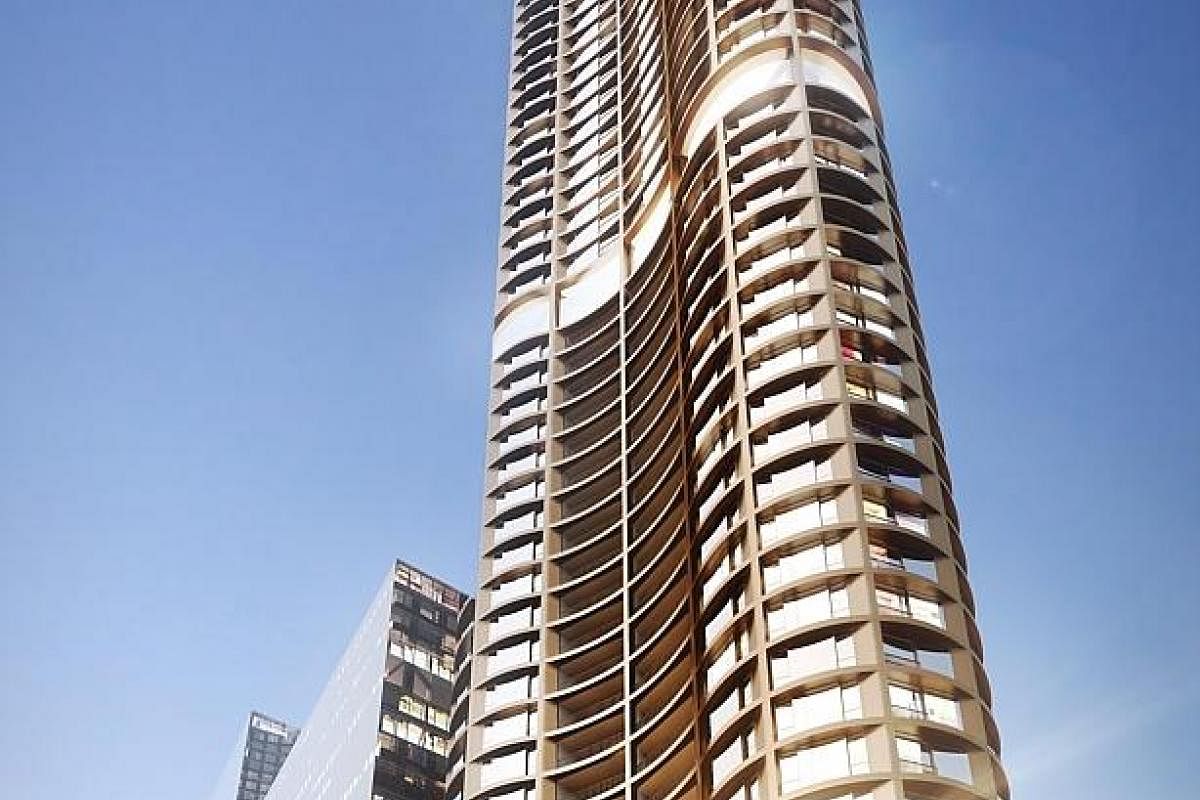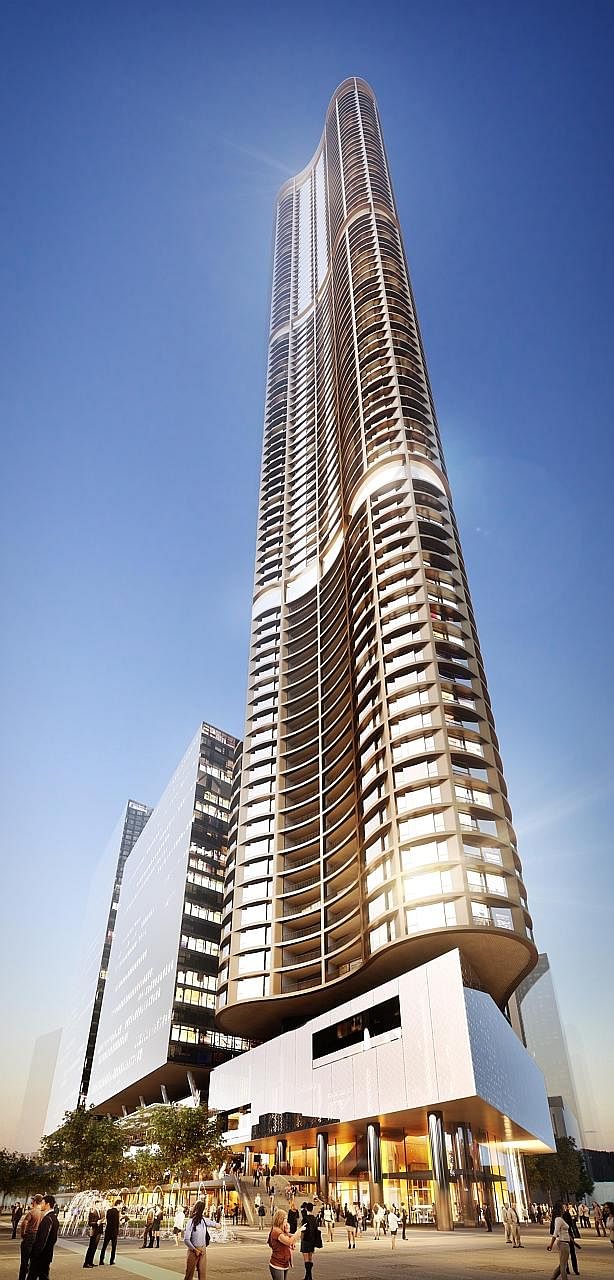-
30%
of Sydney's residents now live in apartments.
50%
of Sydney's residents are expected to live in apartments in the next 20 years.
Field notes
Tensions arise amid Sydney's apartment boom
Disputes over noise and use of common areas surface as city makes rapid shift from houses




Residents at an apartment complex in Sydney were recently surprised to receive a letter with an unusual threat: keep their children quiet or face a A$550 (S$580) fine.
The letter, sent by the building's managers, followed complaints about the noise made by children playing in a shared courtyard.
It said residents could be fined for making such noise, which could be deemed a breach of the building's by-laws. The letter triggered an angry response from some residents, who said the courtyard provided a rare opportunity for children in this city to play safely outdoors with their neighbours.
Speaking to her local newspaper in north Sydney in February, Ms Cathy MacGuinness, who does not have children, said the attempt to ban youngsters from playing was "harsh and oppressive".
"There are so many more Australian families that are being pushed to live in apartments," she told the North Shore Times. "And I can imagine this situation playing out in various apartment blocks."

Such disputes are becoming more common in Sydney - and attracting increasing attention - as the growing city makes a rapid shift from houses to apartments.
Almost 30 per cent of the city's five million residents currently live in apartments, but this is expected to increase to 50 per cent in the next 20 years. Since 2000, the city's population has increased by 22 per cent due to immigration and natural growth, but the land mass has increased by just 2 per cent, to about 12,370 sq km.
To address the resulting problems such as traffic congestion and rising home prices, the New South Wales state government and local councils have rezoned areas for high-density developments.
Areas near the Central Business District are increasingly populated as residents seek to live near the city centre and work hubs. Density in these areas is as high as 15,000 people per sq km.
Many of the larger complexes - which can be as high as 50 storeys - have been built by big property development firms. About two-thirds of apartments are occupied by renters and a third by owners.
Mrs Bayarmaa Sambuu, a 32-year-old migrant from Mongolia who has been living in Australia for a year, moved into an apartment in the suburb of Waterloo about six months ago.
The area, just 4km from the CBD, is filled with new apartment complexes and is set to eventually have a density of about 22,000 people per sq km, roughly triple the density in Singapore.
Mrs Sambuu, an accounting student who lives with her husband Bayarbyamba Sambuu, a 33-year-old delivery driver, said it reminds her of how she used to live in Mongolia, but with "more space" and public parks.
She said she had not encountered any problems or tensions with her neighbours. "It's not too friendly, but it is not especially unfriendly."
Agreeing, her husband said he prefers to live in an apartment to escape Australia's spiders, but noted that "it still has mosquitoes".
TEETHING PROBLEMS
Though most residents like the Sambuus have happily adapted to apartment living, researchers and strata managers say the high-rise boom has created teething problems at times. These include conflicts over issues such as noise, garbage, use of common areas and disputes about levies and budgets.
The various conflicts are often discussed on popular Sydney- based website Flat Chat, run by property expert Jimmy Thomson.
The site invites residents to discuss their myriad "strata issues", including complaints ranging from noisy neighbours to the type of paint used in the building's carpark.
Earlier this month, a resident wondered how to manage "noisy families and their children who run around the pool area, jump in screaming and often play a game... in the pool".
"It's so bad we can hardly hear each other speaking," the resident wrote. "We do have signs but no one obeys them and they abuse you if you try asking them to try to be quiet according to the rules."
In a comment in January, a resident named Susan complained about neighbours leaving shoes on the common path outside their front door. "There were more shoes being left out than the number of units," she wrote. "It's not everyone, of course, just a few residents with an awful lot of shoes."
Mr Thomson responded, suggesting the building's management committee could warn residents that the pool noise will not be tolerated and that it could install security cameras to "catch the culprits".
Dealing with such complaints can be tricky. Most apartment buildings have multiple owners who set rules, or by-laws, under a system known as strata schemes. The rules regulate issues such as pets, noise and smoking, but cannot be harsh or oppressive.
The state government of New South Wales overhauled strata laws last November to try to accommodate the shift to apartment living, particularly the increasing number of larger towers.
The new rules, which can be changed by agreement of the owners, make it easier to take action against people smoking on balconies, and presume that having pets will be allowed.
They also allow owners to set limits on the number of people, excluding family members, allowed to live in each apartment. It will also be easier for owners to make small renovations, such as installing a picture hook, without requiring permission from other owners.
Residents or owners who fail to comply can be issued with warnings and even fined.
HIGH-RISE LIVING FOR DUMMIES
The apartment boom has also prompted publicly funded schemes to ensure residents learn to live harmoniously in close proximity and understand their by-laws.
The council of the City of Sydney, one of the highest-density areas in the country, has been running free weekly "Strata 101" workshops since 2012. The workshops include topics such as the rules for pets and for making repairs and renovations.
District councils in the city have introduced similar programmes as apartment blocks have sprung up.
City councillor Jess Scully said the workshops were needed to ensure that residents "feel like they have a say in where they're living".
"If they don't have an effectively communicating community, that's not good for the city," Ms Scully told Fairfax Media last month, noting that more than 70 per cent of residents in the central city area live in apartment buildings.
Sydney's apartment buildings tend to have a diverse cultural mix - reflecting the city's multicultural population - but this can be a potential source of problems and misunderstandings.
Dr Christina Ho, an expert on cultural diversity at the University of Technology Sydney, said the city's apartment buildings "tend to be more culturally diverse than the traditional quarter-acre block ".
"For many migrants, living in high-rise apartments is completely normal, especially for migrants from Asia," she told The Straits Times.
Dr Ho said cultural and linguistic diversity in close proximity can "create challenges for everyday community harmony".
"There are lots of people moving in for the first time to high-rises in Sydney and they may not know much about things such as by-laws or levies," she added.
Three Sydney academics who have been researching the impact of diversity in apartment buildings - Dr Ho, Dr Edgar Liu and Dr Hazel Easthope - suggest adopting inclusivity to help soothe tensions.
"Don't just put up decorations for Christmas or Easter. Include other cultural events your neighbours celebrate," they wrote in an article for The Conversation website.
"Or, if your building has a 'no decorations' rule, make sure this applies universally and not just to Chinese New Year or Diwali (Deepavali) ornaments."
Join ST's Telegram channel and get the latest breaking news delivered to you.
A version of this article appeared in the print edition of The Straits Times on April 22, 2017, with the headline Tensions arise amid Sydney's apartment boom. Subscribe
